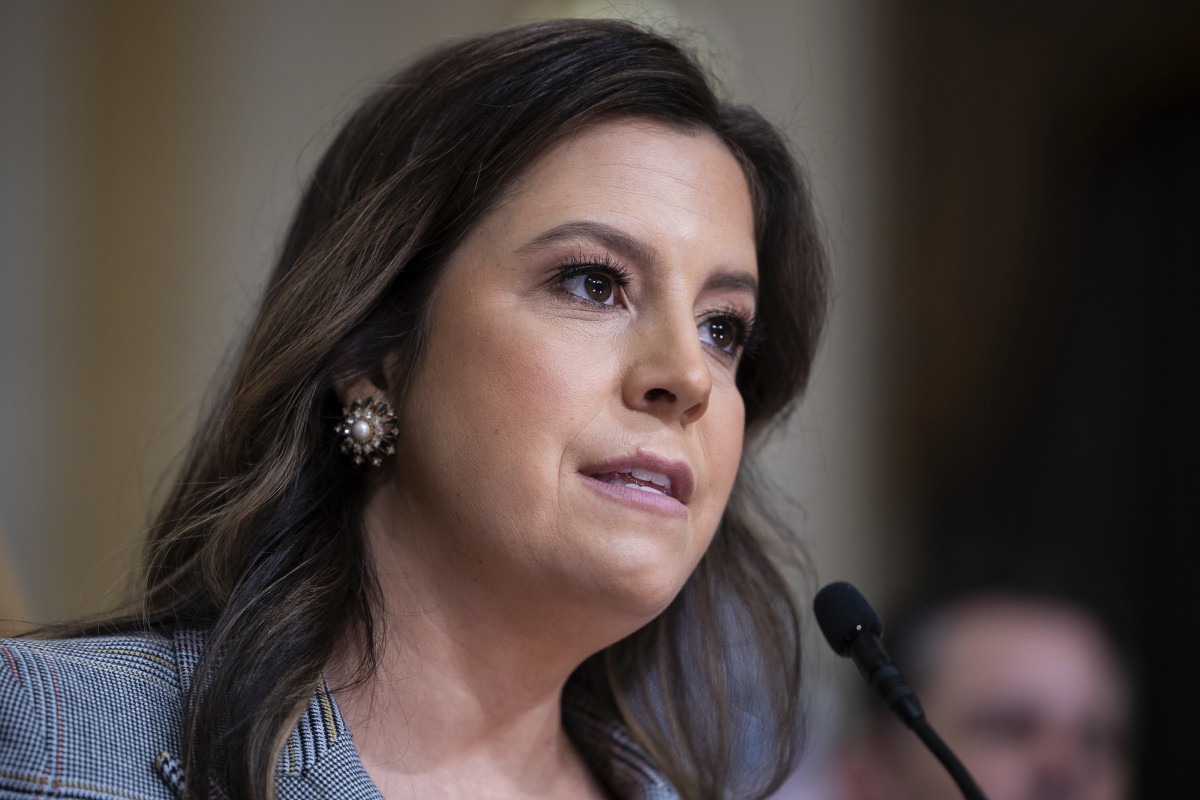Representative Elise Stefanik’s recent actions have stirred controversy, particularly her decision to file an ethics complaint against special counsel Jack Smith for what she alleges to be “illegal election interference.”
This move has raised eyebrows due to its perceived irony and lack of self-awareness, given that Smith’s role is to investigate and prosecute former President Donald Trump for his purported interference in the 2020 election.
Stefanik’s complaint against Smith is seen by many as outrageous, especially in light of Trump’s apparent legal strategy to delay proceedings to avoid any impact on a potential reelection campaign in 2024.

House GOP Conference Chair Elise Stefanik (Credits: The Hill)
Stefanik’s alignment with Trump and her attempts to position herself as a potential vice presidential candidate are noted, alongside her controversial statements and actions in the past.
Among these are her refusal to certify the election results, her dismissal of allegations of sexual abuse against Trump, her characterization of January 6 rioters as “hostages,” and her criticism of New York state law regarding Trump’s legal proceedings.
Additionally, Stefanik’s assertion that the country was better off during Trump’s presidency overlooks his administration’s handling of the Covid-19 pandemic, which was widely criticized.
Stefanik’s recent actions appear to be aimed at seeking attention and currying favor with Trump, as evidenced by her efforts to align herself closely with him despite the controversies surrounding his tenure.
By filing the ethics complaint against Smith, Stefanik may be attempting to bolster her standing within the Trump camp and position herself as a staunch defender of the former president against perceived attacks from his opponents.

Elise Stefanik (Credits: X.com)
However, her move has been met with criticism and skepticism, with many questioning the validity of her claims and the motives behind her actions. Some see Stefanik’s behavior as indicative of a broader trend within the Republican Party, where loyalty to Trump often takes precedence over principles and ethical considerations.
Stefanik’s recent actions have reignited debates about the role of partisanship in politics and the extent to which elected officials are willing to go to advance their own interests and agendas, even at the expense of ethical norms and democratic principles.























